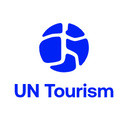100% Of Global Destinations Now Have COVID-19 Travel Restrictions, UNWTO Reports
The COVID-19 pandemic has prompted all destinations worldwide to introduce restrictions on travel, research by the World Tourism Organization (UNWTO) has found. This represents the most severe restriction on international travel in history and no country has so far lifted restrictions introduced in response to the crisis.
Following up on previous research, the latest data from the United Nations specialized agency for tourism shows that 100% of destinations now have restrictions in place. Of these, 83% have had COVID-19-related restrictions in place already for four or more weeks and, as of 20 April, so far no destination has lifted them.
UNWTO Secretary-General Zurab Pololikashvili said: "Tourism has shown its commitment to putting people first. Our sector can also lead the way in driving recovery. This research on global travel restrictions will help support the timely and responsible implementation of exit strategies, allowing destinations to ease or lift travel restrictions when it is safe to do so. This way, the social and economic benefits that tourism offers can return, providing a path to sustainable recovery for both individuals and whole countries."
Tracking Restrictions by Time and Severity
As well as a general overview, the UNWTO research breaks down the type of travel restrictions that have been introduced by destinations in all of the global regions, while also plotting the evolution of these restrictions since 30 January - when the World Health Organization (WHO) declared COVID-19 a Public Health Emergency of International Concern. The latest analysis shows that, of 217 destinations worldwide:
- 45% have totally or partially closed their borders for tourists - "Passengers are not allowed to enter"
- 30% have suspended totally or partially international flights - "all flights are suspended"
- 18% are banning the entry for passengers from specific countries of origin or passengers who have transited through specific destinations
- 7% are applying different measures, such as quarantine or self-isolation for 14 days and visa measures.
Against this backdrop, UNWTO has been leading calls for governments worldwide to commit to supporting tourism through this unprecedented challenge. According to Secretary-General Pololikashvili, the sudden and unexpected fall in tourism demand caused by COVID-19 places millions of jobs and livelihoods at risk while at the same time jeopardising the advances made in sustainable development and equality over recent years.
About UN Tourism
The World Tourism Organization (UN Tourism), a United Nations specialised agency, is the leading international organisation with the decisive and central role in promoting the development of responsible, sustainable and universally accessible tourism. It serves as a global forum for tourism policy issues and a practical source of tourism know-how. Its membership includes 166 countries, 6 territories, 2 permanent observers and over 500 Affiliate Members from the private sector.
Media enquires: [email protected]
UN Tourism Communications Department
+34 91 567 8100
UN Tourism
